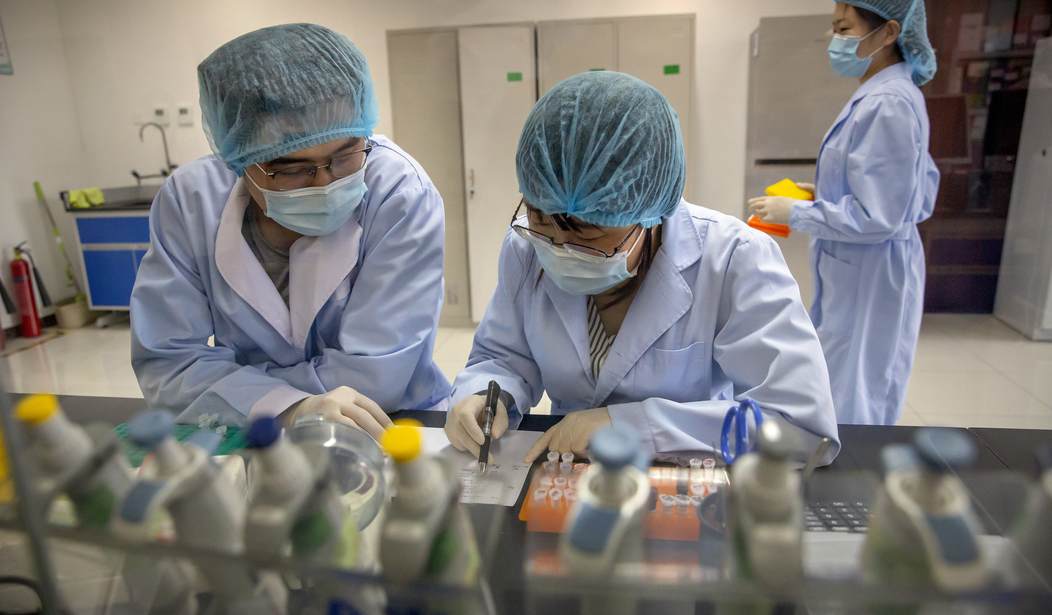We may not have to wait 18 months after all. This week, the biotech company Modern announced that its COVID-19 vaccine candidate demonstrated positive results in early trials. If subsequent trials are successful, the vaccine could be ready by the fall.
Americans need not rest their hopes solely on Moderna. A team of researchers from Oxford University will begin human trials on their COVID-19 vaccine within a month. If it's as effective in humans as it's been in monkeys, the vaccine could also be ready for the fall. Same story for Pfizer's vaccine candidate. President Trump promised last week that a vaccine would be ready by the end of the year.
In other exciting news, during this difficult time, the drugmaker Gilead recently announced the results of a large, government-funded study finding that its COVID treatment, Remdesivir, helped patients recover faster than those on a placebo. This finding follows positive anecdotal evidence of the drug's effectiveness, recently published in the New England Journal of Medicine.
Promising vaccine and treatment developments should partially innoculate people from the irrational fear over COVID. My patients are currently afraid to see their friends or leave their homes. COVID is cause for caution, not panic. The disease poses a short-term threat to lives and livelihoods, yet it has also elicited an unprecedented global mobilization of the best minds in science, philanthropy, and government to defeat it. Human ingenuity, said the late economist Julian Simon, is the unlimited resource.
According to the FDA, 72 coronavirus treatments and vaccines are currently in clinical trials. Until a vaccine is identified, successful therapies can lower death and hospitalization rates, reducing patients' fear that this virus will kill or maim them. This peace of mind can allow the economy to reopen widely.
Recommended
In contrast to Remdesivir, which is an antiviral, several other promising treatments, including those produced by Eli Lilly, AstraZeneca, and Roche, try to suppress the dangerous immune response known as "cytokine storms" that often occur in COVID patients. In addition, the wider use of plasma transfusions from those who recently recovered from the disease may help patients' boost their antibodies needed to fight it off.
Then there's hydroxychloroquine (HCQ), perhaps the most politicized drug in recent history due to President Trump's support (and use) of it. The media has devoted barrels of ink to calling it ineffective. And several recent studies have indeed suggested that patients with severe cases show no better outcomes with the drug. Yet some observational and anecdotal evidence suggest it can have a positive impact at earlier stages of the disease. There are more than a dozen clinical studies on HCQs effectiveness currently underway in the U.S., so we will have more definitive answers on this treatment soon.
These are just some of the potential treatments and vaccines that offer Americans an escape hatch from the status quo of fear, suffering, and economic destruction. They also serve as a much-needed reminder of the vital role that drug manufacturers play in societal well-being. Drugmakers have been vilified by politicians and much of the general public for years now. This sentiment is understandable but misguided. Drug pricing is complex and driven not by "greed" but by a byzantine supply chain, characterized by kickbacks and secret deals. This pandemic reinforces the miracle of modern medications.
Policymakers can help accelerate COVID breakthroughs by allowing drug companies to devote as much of their resources as possible to research by streamlining regulations and avoiding the siren song of price regulations. A laissez-faire approach -- combined with old-fashioned American optimism -- can ensure that we get over this pandemic in months, not years.
Niran Al-Agba is a pediatrician in private practice in Silverdale, WA.
























Join the conversation as a VIP Member